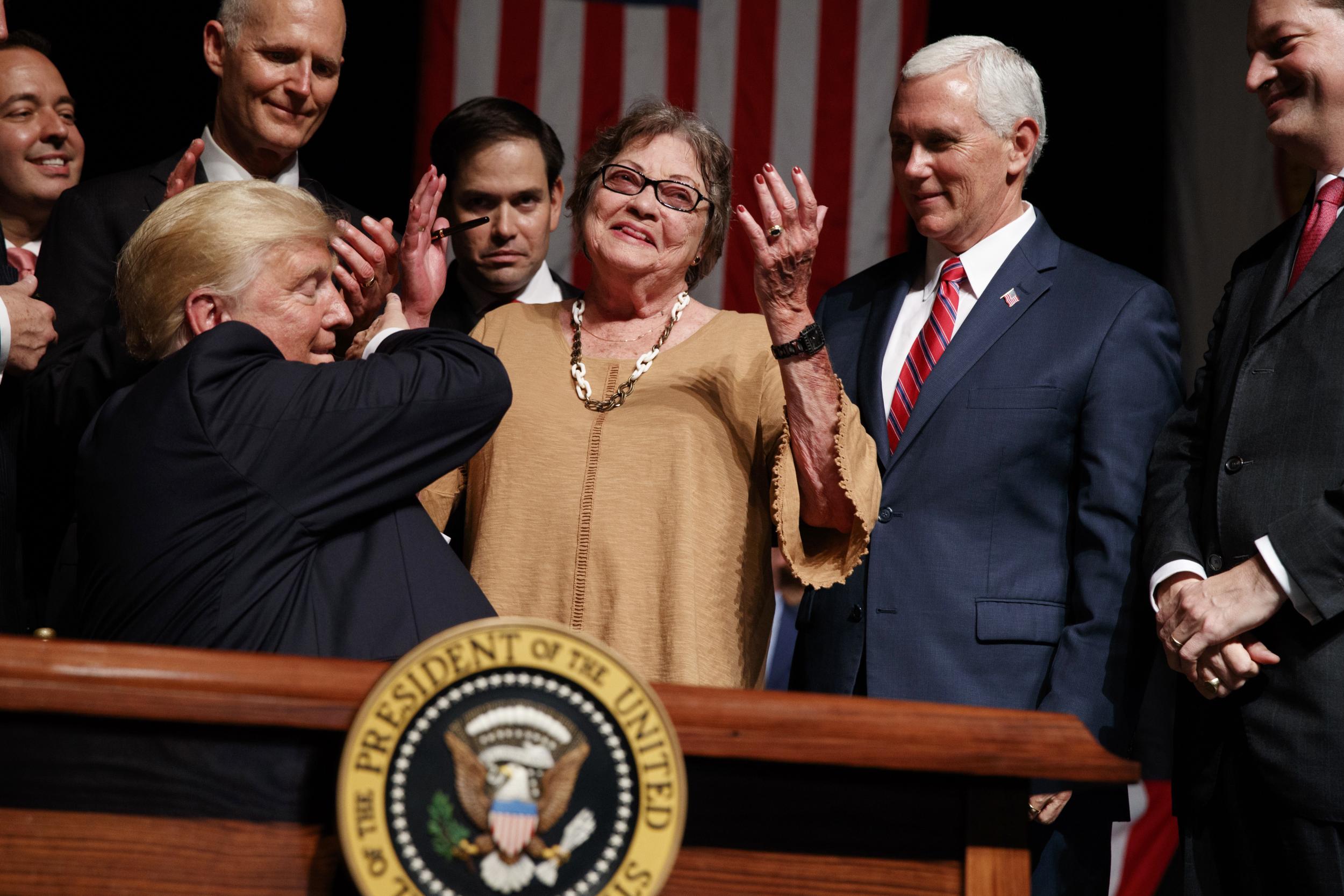What Trump's new Cuba travel restrictions mean, according to an expert
'This is not about the Cuban military, it is about politics'

President Donald Trump is rolling back a number of his predecessor’s policy changes toward Cuba, making good on a campaign pledge he made that likely helped secure votes from conservatives in Florida.
He drew raucous cheers from a crowd in Miami announcing the changes, and brought several Cuban dissidents onto the stage with him to emphasise the point that the Cuban government has been oppressive to its people.
The President plans on tightening travel restrictions for Americans who would head to Cuba, and on tightening restrictions for American investment in the island country in order to keep US money from flowing into the hands of the government. The aim, Mr Trump said, is to get more money into the hands of the Cuban people while pushing reforms in the Cuban government to respect human rights, and return American fugitives hiding out on the island.
We spoke to Sarah Stephens, the founding executive director of the Centre for Democracy in the Americas and Director of the Atlantic Fellows Platform for Innovation and Narrative. Ms Stephens’ works focuses on US-Cuba policy, and favours normalised relations between the two countries.
Here’s what Ms Stephens has to say about Mr Trump’s announcement on Cuba.
What does it mean for the Cuban economy and people that travel will be restricted further?
Only the U.S. imposes travel restrictions on its citizens in deterring travel to Cuba. By taking some US travel out of the equation, the administration will harm US jobs and possibly airlines, but Cuba will remain an attractive travel destination for tourists from every other country on the planet. Cuba’s allies from across the world will happily fill the void created by the US, and it sounds like Cuban Americans — the most regular visitors — will still be allowed to travel.
Is the Cuban military really benefiting from US policy there compared to the Cuban people?
Because more than half-a-million Cubans are self-employed, with many operating retail and service businesses that cater to travellers, they will be hurt by a reduction in demand travel from the US At the same time, our defence and intelligence agencies, senior military officers, retired and active, consistently tell us – and tell the administration – that Cuba is not a security threat.
This is not about the Cuban military, it is about politics, as evidenced by the president’s decision to make this announcement in Miami, and the administration’s unwillingness to make a serious strategic argument for the policy.
Pictures of everyday life in Cuba
Show all 20Does this sound like a significant reset of President Barack Obama’s Cuba policies?
It’s very important that they have maintained diplomatic relations, but if they have disagreements with the Cuban government, the way to resolve them is not by cutting flights, but by using the diplomatic channel.
The president is ordering these new regulations under the auspice of human rights defence, but he recently met with the major rights offender Saudi Arabia. Any thoughts on that dichotomy?
It lays bare the fact that this isn't a serious human rights policy. The Obama policy was based on the pursuit of the US national interest and improving the lives of the people of both countries. Through diplomacy Obama was able to get human rights on the table.
Polls show that most Americans favour more normalised relations with Cuba, and cited a small group of Bay of Pigs veterans in his reasoning — a group that endorsed Mr Trump in what was their first endorsement in decades last year. How do you explain that?
A majority of Americans, a majority of Cuban Americans, and over 90 per cent of Cubans want the policy of engagement to continue. The president’s announcement is about politics, not advancing a serious strategy.
Subscribe to Independent Premium to bookmark this article
Want to bookmark your favourite articles and stories to read or reference later? Start your Independent Premium subscription today.

Join our commenting forum
Join thought-provoking conversations, follow other Independent readers and see their replies